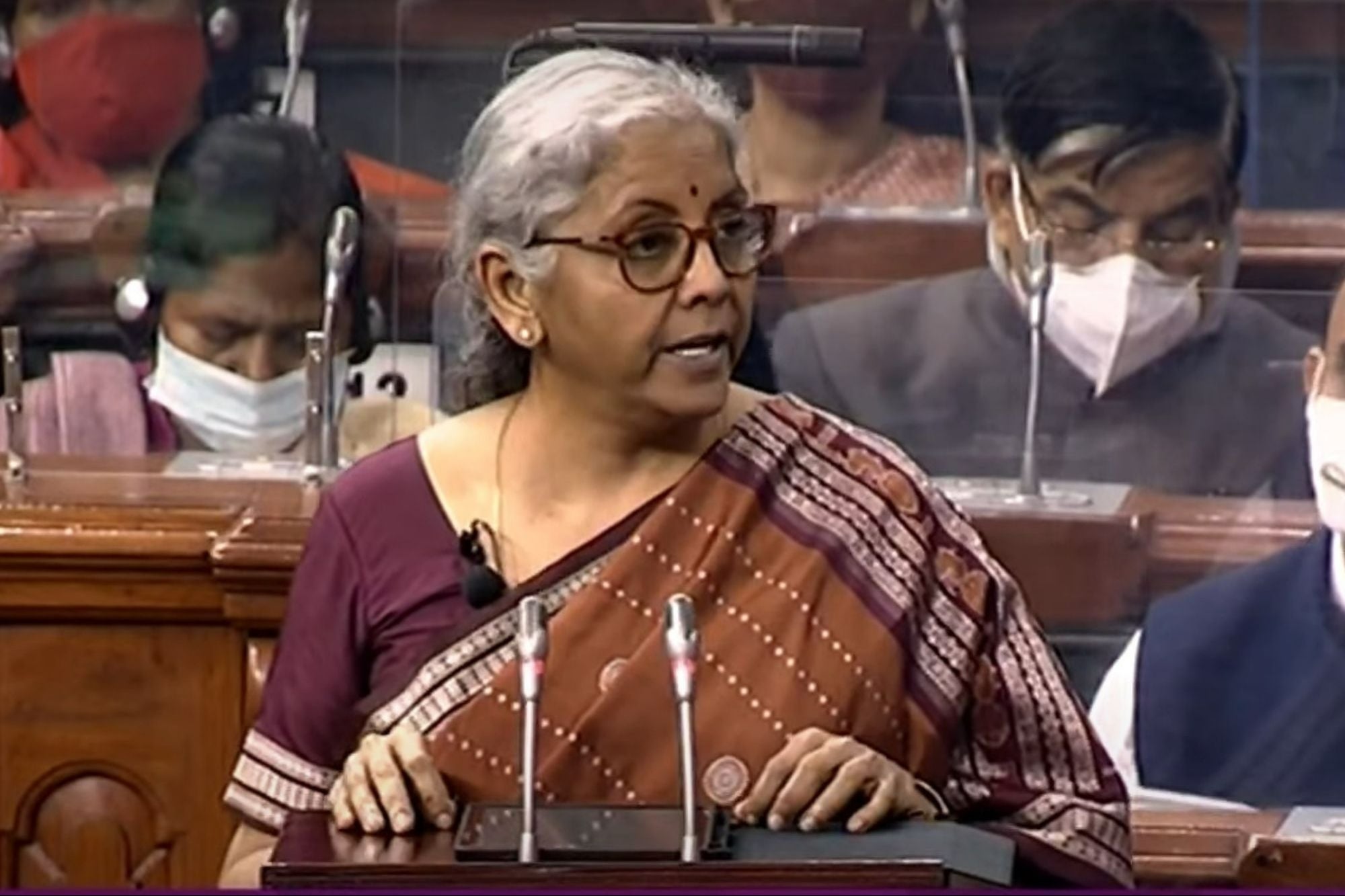India's Own Digital Currency in FY23, Digital Assets To Be Taxed At 30% Besides digital rupee, Finance Minister Nirmala Sitharaman also announced tax regime for digital assets
By S Shanthi
You're reading Entrepreneur India, an international franchise of Entrepreneur Media.

India's own digital currency will soon be a reality. While presenting her fourth budget, Finance Minister Nirmala Sitharaman announced that the digital currency will be issued by the Reserve Bank of India (RBI) in 2022-23.
The digital rupee or central bank digital currency will be introduced using blockchain, said the minister, while adding that it will give a big boost to the economy. Simultaneously, Sitharaman also announced a 30 per cent tax on the proceeds of virtual or digital assets. "Income from transfer of digital assets to be taxed at 30 per cent," she said.
A TDS of 1 per cent will be levied for transactions above a certain threshold. Further, recipients will be taxed in case of a gift of virtual digital assets.
The government had announced its plans to introduce a bill to regulate cryptocurrency in the winter session of Parliament, but it did not happen. Moreover, in July 2021, the RBI had said that it was working towards its own digital currency. RBI deputy governor T Rabi Sankar had called it Central Bank Digital Currency (CBDC) and said that it would be the same as a fiat currency and exchangeable one-to-one with the fiat currency.
The RBI had often mentioned that cryptocurrencies like BitCoin, Ethereum and Dogecoin among many others pose a risk to financial stability. It had warned investors to not get "lured" by the promises of returns on cryptocurrencies.
The current announcement of a digital currency based on blockchain is expected to lead to a more efficient and cheaper currency management system.
"The move to tax virtual digital assets gives the entire ecosystem including investors and exchanges transparency on the road ahead. 30% tax on income from virtual digital assets, while high, is a positive step as it legitimizes crypto and hints at an optimistic sentiment towards further acceptance of crypto and NFTs across stakeholders in the country. The government has come a long way in its stance towards crypto from last Feb to today and we are confident that this will herald a new era of growth and innovation for India in a Web 3.0 world," said Avinash Shekhar, CEO, ZebPay, a crypto exchange platform.
He further added that the announcement on the launch of a Digital Rupee using blockchain issued by the RBI will familiarise Indians with the benefits and efficiency of virtual currency, building an appetite for the crypto, blockchain and the multitudes of innovations and employment opportunities that these technologies are capable of fostering.
Swapnil Pawar, founder, ASQI, a blockchain startup, said that the move to tax digital assets is a welcome one, since it removes the potential confusion in tax filing by crypto-investors. "Taxing of gifts and TDS are also useful to reduce abuse of anonymity in the crypto domain. We believe that the future of crypto innovation is in KYC-compliant transactions in legally recognized tokens," he said.












